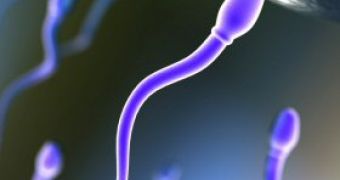Well, Speedy Gonzalez might have been one of the cartoon heroes of your childhood, but mice are speedy in various aspects, including fertilization. A new research carried out at the University of Liverpool has discovered that field mice found a method of having very rapid fertilization that could also be connected to some cases of human sterility. In the race for fast fertilization, field mice have lowered the immune defense of their body: they don't have the protein called CD46.
This protein, present in both animals and humans, impedes the immune cells to attack the cells of the body. As the field mice lost this protein, the acrosome (a cap-like structure over the head of the sperm) turned extremely instable, allowing the acrosome to be quickly shed from the sperm head, releasing a new surface involved in the sperm's capability of fusing with an egg. This phenomenon takes days in humans, but in field mice it is a fast process.
"Field mice have traded the production of an immunologically important protein in favor of this faster fertilization process in order to compete with other mice more successfully. Female mice produce multiple eggs and if there are a lot of male mice competing for her, then it is an advantage to an individual mouse for its sperm to react quickly in order to beat other male competitors to fertilization," said immunologist Professor Peter Johnson.
"By improving our understanding of defects in CD46 we may improve treatments for infertility in men. Humans normally produce a single egg each month and there is no evolutionary necessity to develop rapid sperm reaction to egg fertilization."
The process is therefore much slower and so any defect in CD46 could result in sperm being destabilized too early.
"Interestingly, the rapid reaction caused in mice is similar to that in IVF treatment in humans, where the acronome is artificially expelled from the sperm head before it is introduced to the egg to speed up the fertilization process. Field mice appear to do this naturally," added Johnson.

 14 DAY TRIAL //
14 DAY TRIAL //